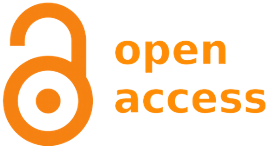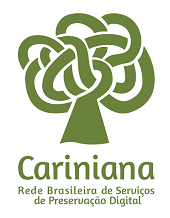O processo do conhecimento/pesquisa no ensino de história
DOI:
https://doi.org/10.5433/2238-3018.2003v9n0p109Keywords:
Historical knowledge, Culture, Representation, Competences, Significative learning, The teaching of history.Abstract
The process of historical knowledge and its adequacy to teaching-learning are dealt in this article starting from the concepts that are the basis of a proposition of work which tries to maintain a dialogue between a pedagogy of inclusion which aims at experiencing citizenship and the respect to the differences, and the reality exclusion which focuses exactly on the distance between theory and experience. Being aware of this contradiction I start from the conception of teaching-learning which leads to a more involving practice. This article aims at considering concepts and conceptions that could orientate the aim of the course for each teacher of History: the relation and difference between History and Memory (as the historical time is the times of changes and the time of collective memory is the one of permance); Culture; Representation (whose notion allows the articulation of three different ways of relation with the social world); Reading; Competences (specially the relation one) and the Significative Learning.
Downloads
References
CHARTIER, Roger. A História Cultural: entre práticas e representações. Trad. Maria M. Galhardo. Lisboa: Difel, 1990
CHARTIER, Roger. À beira da falésia: a história entre incertezas e inquietudes. Tradução Patrícia Chittoni Ramos. 1a. ed. Porto Alegre: Editora Universidade / UFRGS, 2002.
CIAMPI, H. A história pensada e ensinada: da geração das incertezas. São Paulo: EDUC, 2000.
DECCA, E. S. Memória e Cidadania. In: DECCA, E. S. O Direito à Memória: patrimônio histórico e cidadania. São Paulo: Secretaria Municipal de cultura, 1992. p. 129-136
MACEDO, L. Eixos teóricos que estruturam o ENEM: conceitos principais, competências e habilidades, situação-problema como avaliação e como aprendizagem, propostas para pensar sobre situações-problema a partir do ENEM. In: BRASIL. Ministério da Educação. Secretaria de Educação Média e Tecnológica. Seminário do Exame Nacional do Ensino Médio, Brasília: INEP, 1999.
MORIM, Edgar. Os sete saberes necessários à educação do futuro. São Paulo: Cortez, 2000.
MOREIRA, M.; MASSINI, E. Aprendizagem significativa: a teoria da de David Ausubel. São Paulo: Moraes, 1982.
MARTINS, M. H. O que a Leitura. São Paulo: Brasiliense, 1984.
PERRENOUD, P. Construir as Competências desde a escola. Porto Alegre, Artmed, 1999
RATHS, L. et al. Ensinar a Pensar: São Paulo: Ed. Pedagógica e Universitária, 1977
SANTOS, J. O pós-moderno. São Paulo: Brasiliense, 1987
SCHAFF, A. História e verdade. São Paulo: Martins Fontes, 1986.
THOMPSON, E.P. A A formação da classe operária inglesa. Tradução de Denise Bottmann. Rio de Janeiro: Paz e Terra, 1987
THOMPSON, P. A voz do passado. História oral. Rio de Janeiro: Paz e Terra, 1972
Downloads
Published
How to Cite
Issue
Section
License
Copyright (c) 2003 História & Ensino

This work is licensed under a Creative Commons Attribution 4.0 International License.
História & Ensino adota a licença CC-BY esta licença permite que os reutilizadores distribuam, remixem, adaptem e criem a partir do material em qualquer meio ou formato, desde que a atribuição seja dada ao criador. A licença permite o uso comercial.






















